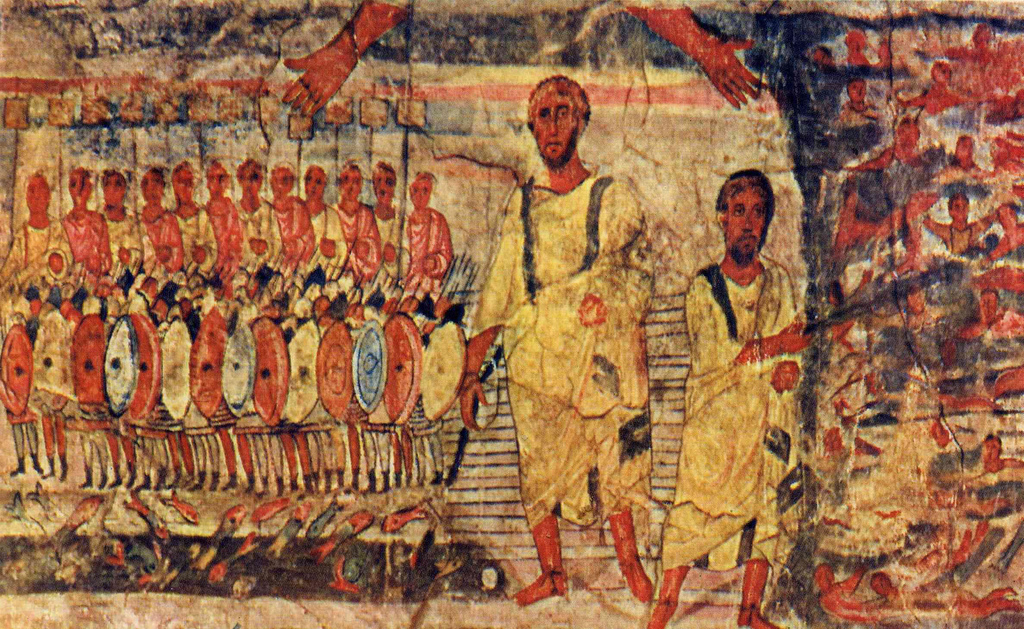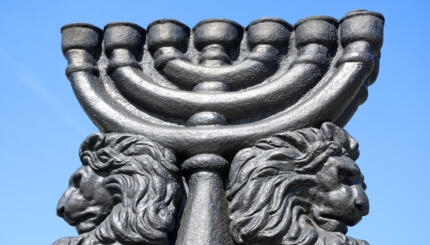Commentary on Parashat Bo, Exodus 10:1-13:16
Pharaoh’s Conditions
After the plague of darkness immobilizes Egypt, Pharaoh is prepared to discuss releasing the slaves so they can worship God. However, he dictates conditions:
And Pharaoh called for Moses and he said, “Go, worship Ha; however, your sheep and your cattle will stay; even your children will go with you.” And Moses said, “You will even give sacrifices and burnt-offerings into our hands, and we will offer them to Hashem our God. Also, our own livestock will go with us, not a hoof will remain, for from it shall we take (nikach) to worship Hashem our God, and we will not know how (mah) we will serve Hashem until our arrival there.”
And God strengthened Pharaoh’s heart, and he did not want to let them go. And Pharaoh said to him, “Leave me! Watch yourself, do not continue to see my face, because on the day you see my face you will die!” And Moses said, “You have spoken well; I will not continue to see your face again” (Exodus 10:24-29).
Animals as Collateral
According to Chizkuni (R. Chizkiya ben Manoach, mid 13th century commentator), Pharaoh demands that the animals remain behind to serve as security that the slaves will return. Ibn Ezra (12th century Spanish commentator), on the other hand, says that this isn’t a sincere offer. Rather, Pharaoh is testing Moses: his response to Pharaoh’s terms will demonstrate whether he intends the slaves to escape and not return.
Since this exchange between Moses and Pharaoh is part of their bargaining, how are we to understand Moses’ prediction that, not only will Pharaoh eventually allow the Hebrews to take their own animals, but the Egyptians will send animals for sacrifice? Is Moses’ suggestion realistic, or is it made only for the purpose of negotiations?
The Meaning of Moses’ Negotiations
Ramban (Nachmanides) maintains that any offering of the wicked Pharaoh would never be accepted; rather, Moses is using hyperbole, as if to say, “When the time comes to release us, you will be ready to do whatever we ask.” Other commentaries, however, argue that there is an essential truth in Moses’ statement, and we will not know how (mah) we will serve God until our arrival there.
With your help, My Jewish Learning can provide endless opportunities for learning, connection and discovery.
To Rashi, “mah” suggests, “We do not know how much we will be asked to offer. Perhaps God will demand more animals than we now own, and we will have to accept additional animals from you to be prepared.”
Ohr HaChaim (R. Chaim ben Moshe ibn-Attar, 18th century commentator) says that “mah” has two meanings in this context:
- How much (as in Rashi)
- In what way.
Accordingly, says Ohr HaChaim, Moses is expressing two ideas simultaneously:
1. We may be asked to bring more sacrifices than we are able to prepare for. So, we will bring all our animals–not only those that are conventionally sacrificed, but even our donkeys, horses and camels–because they can be sold or exchanged to acquire suitable animals (see Tractate Avodah Zarah 24b). This is indicated by the words not a hoof will remain, for from it shall we take to worship Hashem our God.
By emphasizing we take (nikach, which also connotes “we will purchase”), Moshe is focusing on the value, the “purchase power” of the animals.
2. We must bring everything with us, for in addition to sacrifices (as was delineated in 5:3) we might be commanded to build altars and a sanctuary, to fashion utensils, etc. Therefore, “we will not know how (mah) we will serve Hashem” means, “We must be open to whatever demands Hashem will place upon us.” God defines avodat Hashem, as how He is to be served.
The Meaning of Avad
The Hebrew root for “serve” is a–v–d. It may be said that a-v-d serves as a leitmotif of our parshah, as this word appears, in various forms, 21 times (an average of once for every three verses!), spanning the entire portion from the beginning (10:1) to the end (13:14).
At times, it is found in the word eved, meaning “slave,” for example:
And it shall be, when your son asks you someday, saying “What is this?” then you will say to him, “With a mighty hand did God take us out of Egypt, from the house of slaves” (13:14).
At other times, the root refers to Pharaoh’s servants and advisers, as in:
And God said to Moses, “Come to Pharaoh, because I have hardened his heart and the heart of his servants . . .” (Exodus 10:1).
Another connotation of a-v-d is “serving, or worshipping God,” as seen in Exodus 10:24-26. This usage, too, pervades the portion:
“. . . let my people go, that they may serve Me” (Exodus 10:3).
And Moses and Aaron were brought back to Pharaoh, and he said to them, “Go serve Hashem your God . . .” (Exodus 10:8).
And [Pharaoh] called for Moses and for Aaron at night, and he said, “Arise, leave from the midst of my people, both you and the Children of Israel, and go serve God as you have spoken” (Exodus12:31).
In a similar vein, we learn of the Passover sacrifice, which is called avodah, “service:”
And it shall be, when you come to the land which God will give you, as He spoke, then you shall observe this service. And it will be, when your sons will say to you, “What is this service to you?” (Exodus 12:25-26)
A Transformation of Meaning
Thus, a-v-d is seen in all its shades of meaning in this parashah, from demeaning slavery to exalting Divine worship. a-v-d is a concept that undergoes a significant transformation in the course of this portion, which charts the transition of the Hebrews from being Pharaoh’s slaves to becoming servants of Hashem. Pharaoh’s caprices left the Hebrews powerless, crushed. But God’s commandments empower and ennoble them.
God, Creator and Master of the universe, is the One Who sets the standards for mankind. He defines morality as well as the paths to spiritual connection. We who serve God must listen for His dictates, and, when He commands, we must respond, as did our Patriarchs and Moses, with “Here we are–Heneini.”
Provided by the Orthodox Union, the central coordinating agency for North American Orthodox congregations.
Moshe
Pronounced: moe-SHEH, Origin: Hebrew, Moses, whom God chooses to lead the Jews out of Egypt.
Pesach
Pronounced: PAY-sakh, also PEH-sakh. Origin: Hebrew, the holiday of Passover.



